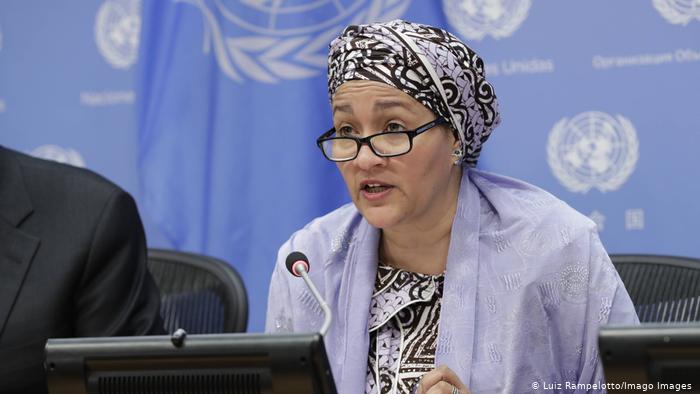By Asmau Ahmad
The United Nations Deputy Secretary-General, Amina Mohammed says ending the acute phase of the COVID-19 pandemic and building resilience against the next outbreak will be critical to achieving the Sustainable Development Goals (SDGs).
She said this at the opening of Africa Regional Forum on Sustainable Development in Kigali on Thursday, held to review progress towards implementing the SDGs and the African Union’s (AU) Agenda 2063.
The three-day meeting was convened by the UN Economic Commission for Africa (ECA).
Amina Mohammed outlined five priorities to guide the deliberations, starting with pandemic response.
“Vaccinating 70 per cent of the world by July this year remains our primary objective,” she said.
“We must also build stronger and more resilient health systems by investing in primary health care and health surveillance systems, as well as greater production of vaccines, diagnostics and treatments.”
Turning to the climate crisis, the UN deputy chief called for scaling up investments to protect people and ecosystems at the frontlines of this global emergency.
She said developed countries must urgently deliver on their commitment to double adaptation finance to at least 40 billion dollars a year by 2025, a pledge made at the COP26 UN climate change conference in Glasgow last year.
At the same time, regional and multilateral development banks must scale up their renewable energy and resilient infrastructure portfolios, as well mobilise more private finance.
Her third point focused on the need to “supercharge” just transitions in energy, food systems and digital connectivity.
“We need a just energy transition that allows Africa to access clean and affordable energy while protecting livelihoods,” Mohammed said.
She cited a partnership to support South Africa, which was launched at COP26, which has set a valuable precedent for international collaboration.
Mohammed said that sustainable and resilient food systems guarantee access to healthy diets and nutrition, while restoring and protecting nature.
Meanwhile, affordable connectivity and digital skills are needed to create more job opportunities for young people.
For her fourth point, the deputy-secretary-general underlined the need for education to recover from the pandemic.
“In developing countries especially, the pandemic risks causing a generational catastrophe,” she warned.
In September, the UN Secretary-General, Antonio Guterres is convening a Summit on Transforming Education.
She said the event would renew commitment to education as a pre-eminent public good, in addition to mobilising action and solutions.
Her final priority area addressed the need to accelerate gender equality and economic transformation.
“Over 70 per cent of people across Africa – the majority of them women – continue to earn their livelihoods in the informal economy, which is an afterthought in economic strategies and metrics,” she said.
Therefore, robust and decent job creation must be matched by the achievement of universal social protection, according to Mohammed.
In 2021, the UN and the International Labour Organisation (ILO) launched the Global Accelerator for Jobs and Social Protection, which she said is central to these efforts.
The Accelerator aims to create 400 million new jobs in the care, green, and digital sectors, and expand protection to half of the global population by 2030.




